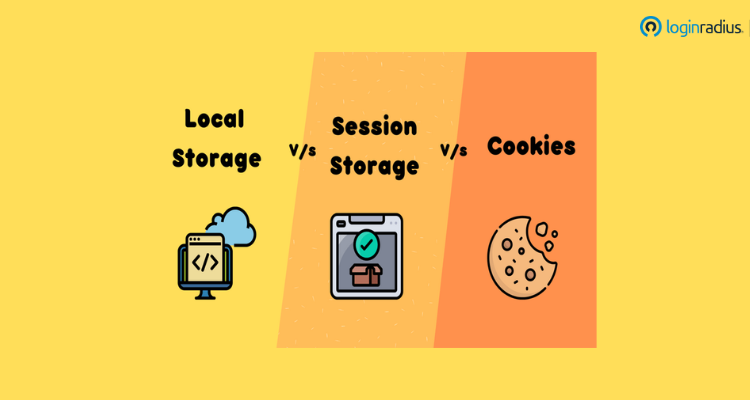Living with Bittersweet Emotions.
A Personal Perspective: Responding to impermanence in the many flavors of life.
Reviewed by Lybi Ma
KEY POINTS-
Life teaches us about impermanence, that the people and things we count on may not always be there for us.
Emotional agility is the capacity to accept our difficult thoughts, emotions, and experiences with courage and self-compassion.
Experiencing mixed emotions can help us create greater meaning in our lives as we face challenges and uncertainties.
As the saying goes, life is sweet. And while we may wish for consistently sweet moments, life often serves us other flavors.
Our lives are sprinkled with tastes of bittersweet moments, sad moments, and moments of loss, moments we did not ask for and cannot control. We live our days immersed in our hectic schedules, striving to get what we want and grasping tightly to what we love. And while sometimes we can hold on, at other times life reminds us that we cannot and will not be able to hang on to what really matters to us. Scared, reluctant, kicking, and screaming, we learn that life is impermanent; and that the people and things we count on may not always be there for us.
Recently, we celebrated my mom’s birthday. In her nineties now, as she nears the closing courses of a long and remarkable life, she occasionally remembers vivid moments, but mostly struggles with the veil of dementia—losses of mind and body that are not performing the way she would want.
My mom is deeply loved by our family—she is mother, mother-in-law, wife, aunt, grandma, and great-grandma—we are the loves of her life. To mark her birthday, those of us in town created a gathering to honor her and celebrate. Given my mom’s current circumstances, the party was brief but meaningful. Mostly, it was an opportunity for the grandkids and great-grands to share a few moments with her, which they’ve largely been denied during the limitations of the pandemic.
The day before the celebration, we decided to bake cookies with Mom’s great-grandkids. Not just any cookies, 60 homemade sugar cookies cut in different shapes, covered with homemade frosting in the children’s three favorite colors, and, of course, lots and lots of sprinkles. The kids worked as carefully as they could, resulting in almost as many sprinkles on the floor as on the cookies. They labored with intention and love for hours—rolling dough, baking, cutting shapes, and decorating—with frosting and not one, but four kinds of sprinkles.
The next day, the birthday gathering was a success—love, joy, connection—and the beautiful cookies with icing and sprinkles were shared with great-grandma and each other. And the sprinkles continue to sparkle. In an unexpected way, those sweet sprinkles have remained not only on my mind but most everywhere in our home for the past few days. On every floor and in every room, I continue to find them graced with the love of children and their great-grandma—in all the colors of the rainbow, four shapes and sizes—sweet, and after I inadvertently step on them, not so sweet. Truly, these are bittersweet moments, filled with colorful and mixed emotions. As I continue to discover candied sprinkles, I contemplate my relationship with this time in my life filled with joy and also loss, the small day-to-day losses, and the anticipated big loss to come.
How do we navigate the sweetness and bittersweetness of our inner and outer worlds—pivoting between the mixed emotions of happiness and well-being, change, loss, and the search for meaning?
Amid this bittersweetness, we reluctantly learn that much in life is beyond our sphere of control—we cannot control what others do, the separations and losses, the passage of time, the impermanence of life, what we long for and cannot attain. And yet, in the face of life’s poignant bittersweet sorrows and longings, we muddle on, seeking happiness, connection, and light. Life is in constant transformation and we can choose our attitudes, actions, and responses on the journey.
While my mom’s mind and body are gradually fading on her journey, I believe her spirit is more vibrant than ever, with multi-colored textures and light sprinkled through a long, colorful, and meaningful life. The stories I tell myself in this chapter of her life and mine blend joy and grief, sweetness and bittersweetness, light and dark. Harvard Medical School psychologist, Susan David, Ph.D., teaches about emotional agility, the capacity to acknowledge and accept our difficult thoughts, emotions, and experiences; not dwelling on them, but learning with courage and self-compassion. According to Susan David, emotionally agile people deal with circumstances as they arise, feel the experience fully but loosely, and then move past them to invigorate resilience and our response to change (David, 2016).
Research reveals that experiencing mixed emotions, balancing pleasant and less pleasant feelings, can have a positive effect on the sense that one’s life has meaning and purpose, and eudemonic well-being (Cain, 2022; Berrios, et al, 2017). In Greek, eudaimonia means to live in sync with your highest self, with what matters to you in the deepest ways. Thus, experiencing mixed emotions dispersed in the messiness of our lives can help us create profound meaning in the face of life’s uncertainties. This process beckons us toward well-being and positive affect as we attempt to navigate and transcend our challenges and difficulties in uniquely personal ways.
In the changing seasons of life, we may find ourselves all too aware of fragility, our own and each other's. We find ourselves immersed in life’s impermanence, at the edges of a mystery that we come to understand is undeniable.
As life proceeds, we reluctantly learn in deeply personal ways that change is inevitable:
the vulnerability of everyone and everything we care about
that our time together can be beautiful, but will undeniably end in one way or another
that we may want more, but cannot always have it
And that life serves up many flavors, and we can strive to move toward acceptance. For the sweet, bittersweet, and, yes, the difficult, painful moments we are served are the essence of the human condition.
Disclaimer: This article is for informational purposes only. No content is a substitute for consulting with a qualified mental health or healthcare professional.
Living with Bittersweet Emotions.
A Personal Perspective: Responding to impermanence in the many flavors of life.
Reviewed by Lybi Ma
KEY POINTS-
Life teaches us about impermanence, that the people and things we count on may not always be there for us.
Emotional agility is the capacity to accept our difficult thoughts, emotions, and experiences with courage and self-compassion.
Experiencing mixed emotions can help us create greater meaning in our lives as we face challenges and uncertainties.
As the saying goes, life is sweet. And while we may wish for consistently sweet moments, life often serves us other flavors.
Our lives are sprinkled with tastes of bittersweet moments, sad moments, and moments of loss, moments we did not ask for and cannot control. We live our days immersed in our hectic schedules, striving to get what we want and grasping tightly to what we love. And while sometimes we can hold on, at other times life reminds us that we cannot and will not be able to hang on to what really matters to us. Scared, reluctant, kicking, and screaming, we learn that life is impermanent; and that the people and things we count on may not always be there for us.
Recently, we celebrated my mom’s birthday. In her nineties now, as she nears the closing courses of a long and remarkable life, she occasionally remembers vivid moments, but mostly struggles with the veil of dementia—losses of mind and body that are not performing the way she would want.
My mom is deeply loved by our family—she is mother, mother-in-law, wife, aunt, grandma, and great-grandma—we are the loves of her life. To mark her birthday, those of us in town created a gathering to honor her and celebrate. Given my mom’s current circumstances, the party was brief but meaningful. Mostly, it was an opportunity for the grandkids and great-grands to share a few moments with her, which they’ve largely been denied during the limitations of the pandemic.
The day before the celebration, we decided to bake cookies with Mom’s great-grandkids. Not just any cookies, 60 homemade sugar cookies cut in different shapes, covered with homemade frosting in the children’s three favorite colors, and, of course, lots and lots of sprinkles. The kids worked as carefully as they could, resulting in almost as many sprinkles on the floor as on the cookies. They labored with intention and love for hours—rolling dough, baking, cutting shapes, and decorating—with frosting and not one, but four kinds of sprinkles.
The next day, the birthday gathering was a success—love, joy, connection—and the beautiful cookies with icing and sprinkles were shared with great-grandma and each other. And the sprinkles continue to sparkle. In an unexpected way, those sweet sprinkles have remained not only on my mind but most everywhere in our home for the past few days. On every floor and in every room, I continue to find them graced with the love of children and their great-grandma—in all the colors of the rainbow, four shapes and sizes—sweet, and after I inadvertently step on them, not so sweet. Truly, these are bittersweet moments, filled with colorful and mixed emotions. As I continue to discover candied sprinkles, I contemplate my relationship with this time in my life filled with joy and also loss, the small day-to-day losses, and the anticipated big loss to come.
How do we navigate the sweetness and bittersweetness of our inner and outer worlds—pivoting between the mixed emotions of happiness and well-being, change, loss, and the search for meaning?
Amid this bittersweetness, we reluctantly learn that much in life is beyond our sphere of control—we cannot control what others do, the separations and losses, the passage of time, the impermanence of life, what we long for and cannot attain. And yet, in the face of life’s poignant bittersweet sorrows and longings, we muddle on, seeking happiness, connection, and light. Life is in constant transformation and we can choose our attitudes, actions, and responses on the journey.
While my mom’s mind and body are gradually fading on her journey, I believe her spirit is more vibrant than ever, with multi-colored textures and light sprinkled through a long, colorful, and meaningful life. The stories I tell myself in this chapter of her life and mine blend joy and grief, sweetness and bittersweetness, light and dark. Harvard Medical School psychologist, Susan David, Ph.D., teaches about emotional agility, the capacity to acknowledge and accept our difficult thoughts, emotions, and experiences; not dwelling on them, but learning with courage and self-compassion. According to Susan David, emotionally agile people deal with circumstances as they arise, feel the experience fully but loosely, and then move past them to invigorate resilience and our response to change (David, 2016).
Research reveals that experiencing mixed emotions, balancing pleasant and less pleasant feelings, can have a positive effect on the sense that one’s life has meaning and purpose, and eudemonic well-being (Cain, 2022; Berrios, et al, 2017). In Greek, eudaimonia means to live in sync with your highest self, with what matters to you in the deepest ways. Thus, experiencing mixed emotions dispersed in the messiness of our lives can help us create profound meaning in the face of life’s uncertainties. This process beckons us toward well-being and positive affect as we attempt to navigate and transcend our challenges and difficulties in uniquely personal ways.
In the changing seasons of life, we may find ourselves all too aware of fragility, our own and each other's. We find ourselves immersed in life’s impermanence, at the edges of a mystery that we come to understand is undeniable.
As life proceeds, we reluctantly learn in deeply personal ways that change is inevitable:
the vulnerability of everyone and everything we care about
that our time together can be beautiful, but will undeniably end in one way or another
that we may want more, but cannot always have it
And that life serves up many flavors, and we can strive to move toward acceptance. For the sweet, bittersweet, and, yes, the difficult, painful moments we are served are the essence of the human condition.
Disclaimer: This article is for informational purposes only. No content is a substitute for consulting with a qualified mental health or healthcare professional.






